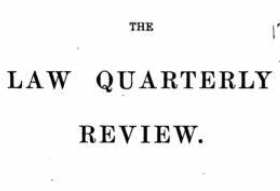CW: rape
(A few short points arising from the recent developments in Chaucer studies: see the special edition of The Chaucer Review.)
It is striking that by far the greatest contribution – for good or ill – to scholarship and comment on the very legal matter of the Chaucer-Chaumpaigne case has been by those from outside the field of legal history, and particularly legal history of the ‘classical legal history’ tradition of Maitland-Milsom-Baker and the Selden Society. In general, the luminaries of this school have not considered women, and raptus, central to their mission, to their subject. To regret that lack of interest in this specific case is not, however, to assume that legal historians would have been likely to be any less influenced by the prejudices of the men of their age with regard to women and rape than were those working in literary studies. Those who did venture into this territory did not necessarily cover themselves with glory.
One of the quotations which is used in descriptions of the unedifying rape-apologism of many past Chaucer scholars is from a legal historical luminary, and Selden Society man, Theodore Plucknett.[i] Plucknett’s short article, in the 1948 volume of the Law Quarterly Review, starts off jarringly, with its title: ‘Chaucer’s Escapade’. The overtones of ‘escapade’ surely do not need to be spelled out, and a general air of not taking the whole thing terribly seriously is reinforced by his explanation of why he is tackling the topic – it was prompted by an ‘entertaining article’ in the previous year’s LQR, by one P. R. Watts.
Plucknett reconstructs legal events in what was, overall, a not unreasonable way, given the evidence then available, but there is some falling into patterns and tropes which many of us will recognise, e,g, suggesting that Cecily ‘wanted money’ (34), and that she was ‘indignant (or repentant, or just hard-headed)’ and so refused to have dealings with Chaucer himself over the compensation. There is a bit of reconstruction from what he presumably considered common sense: ‘That he seduced Cecilia we may well believe; that she was angry with him, and still more with herself, is extremely probable. She may have honestly thought that because it all happened against her better judgment, that therefore it was without her consent.’ (35-6). Hmm. Women not able to tell their feelings from the truth? Then there is ‘Her scandalised family would naturally treat that as an irrebuttable presumption.’ Would they really? And what would modern criminal law scholars make of this: ‘Rape is a brutal crime and implies a degree of depravity which should make us cautious in fixing such a charge.’ (35-6).
I also had a look at the article which Plucknett found so ‘entertaining’ and stimulating, P.R. Watts, “The Strange Case of Geoffrey Chaucer and Cecilia Chaumpaigne,” Law Quarterly Review 63, no. 4 (October 1947): 491-515. This, too, has some lines which do not bear scrutiny, e.g. calling rape a ‘crime of passion’ (496). And Hale’s old fear about false accusations of rape lying too heavily on the innocent defendant is trotted out (496, citing 1. Hale P.C. 685, as is the very nasty passage from Don Quixote in which a woman is criticised for failing to defend her body sufficiently vigorously, when, on another occasion, she was vigorous in pursuing her financial interests (504, Don Quixote c. 45). Perhaps the part which would have seemed ‘entertaining’ was Watts’s speculative reconstruction of events which might have given Chaucer a defence to a felony prosecution. This involved a story that Cecily might have become pregnant following the rape, which would have been a defence (probably true that it would have been a defence, had it happened, but this really does get speculative. A flavour from p. 509: ‘So far as Cecilia Chaumpaigne is concerned, we have no evidence of pregnancy, and in the absence of evidence we are not justified in assuming it. Nevertheless … [yes we are going there]. And even more … ‘[If it becomes clear that Chaucer did impregnate Cecily through rape, and she had the child, and it was the Lewis to whom he dedicated a book on astrolabes – what every child wants – …] ‘we may be able to close our record of an unedifying chapter in Chaucer’s life with a scene not without some redeeming aspects of tenderness and grace-the poet devoting himself, in the full maturity of his powers, to the inditing of a scientific treatise for the instruction of Cecilia’s son’. [So, right, yeah, I raped your mother, but here – book about astrolabes – OK, bye!].
And now?
The world of legal history has, of course, moved on. Maybe not as quickly as other areas of scholarship, but there are glacial signs of change, of interest in perspectives other than that of the socially and economically fortunate white male, of openness to the insights of feminism and other critical fields. We should certainly note the questionable content in the past of our own discipline, but then we need to pick up the pace, and engage with other scholars, as we can see different groups coming together in this recent Chaucer project. There really is plenty which could be contributed to wider fields of study by legal historians.
GS
16/10/2022
[i] Samantha Katz Seal; Whose Chaucer? On Cecily Chaumpaigne, Cancellation, and the English Literary Canon. The Chaucer Review 1 October 2022; 57 (4): 484–497, at 493-4, noted as ‘One of the most frequently quoted statements on the matter’; Theodore F. T. Plucknett, “Chaucer’s Escapade,” Law Quarterly Review 64 (1948): 33–36

